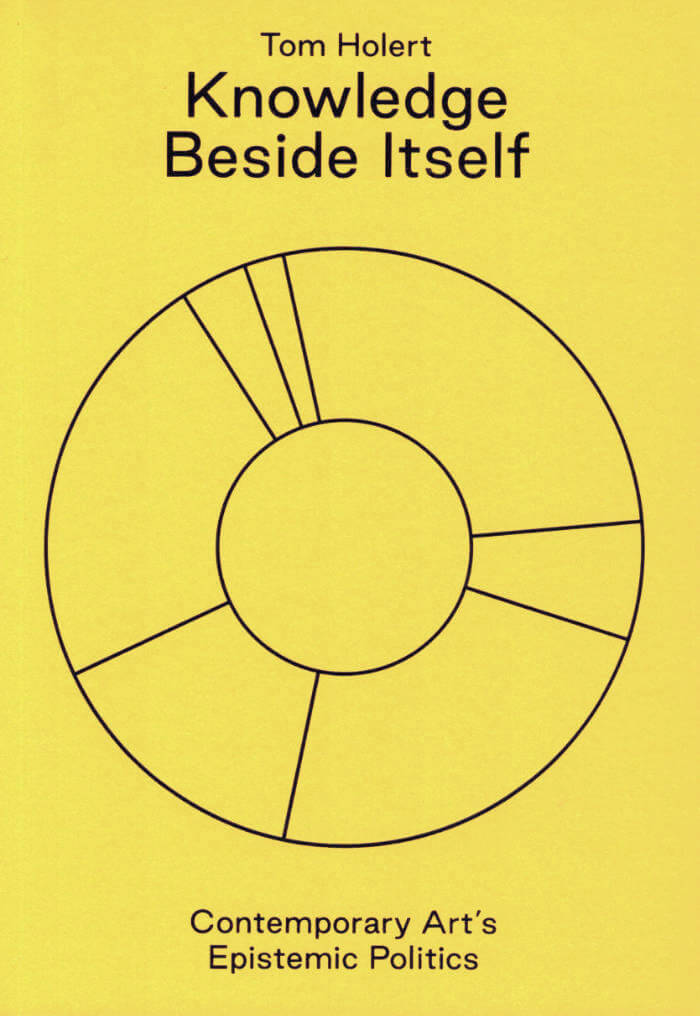
Knowledge Beside Itself – Contemporary Art's Epistemic Politics
A study on the role of research and knowledge production in today's contemporary art, and the growing relevance of art as conduit of knowledge.
What is the role and function of contemporary art in economic and politicalsystems that increasingly manage data and affect? Knowledge Beside Itself delves into the peculiar emphasis placed in recent years, curatorially and institutionally, on notions such as “research” and “knowledge production.” Considered as a specific, expansive mode of the culture industry, contemporary art is viewed here as a strategic bet on the social distinctions and value extractions made possible by claiming a different, novel access to “knowledge.” Contemporary art's various liaisons with the humanities and the social and natural sciences, as well as its practitioners' frequent embeddedness within transdisciplinary research environments and educational settings, have created a sense of epistemo-aesthetic departure, which concurs with the growing relevance of art as conduit or catalyst of knowledge.
Discussing the practice of artists such as Christine Borland, Tony Chakar, Natascha Sadr Haghighian, Adelita Husni-Bey, Jakob Jakobsen, Claire Pentecost, and Pilvi Takala, writer and curator Tom Holert submits the gambit of conceptualizing contemporary art as an agent of epistemic politics to a genealogical analysis of its political-economic underpinnings in these times of cognitive capitalism, machine learning, and a renewed urgency of epistemological disobedience.
Tom Holert is a writer and curator. In 2015 he cofounded the Harun Farocki Institut in Berlin, a platform for research and production departing from the example set by Farocki. With Anselm Franke he curated the 2018 exhibition “Neolithic Childhood: Art in a False Present, c. 1930” at Haus der Kulturen der Welt, Berlin.





.jpg)

